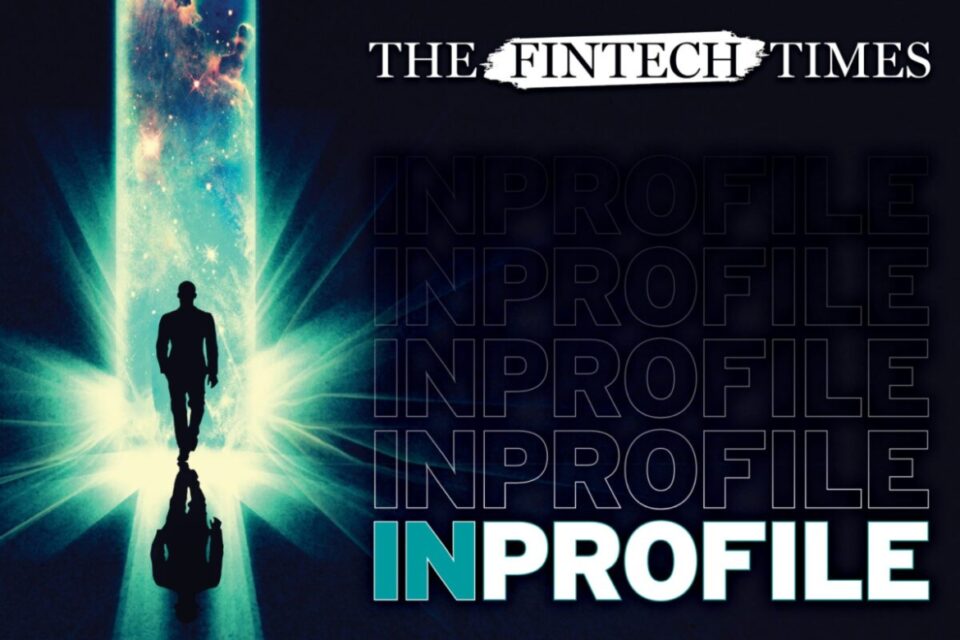Each month, The Fintech Times sits down with an industry leader. In this profile, Editor-in-Chief Gina Clarke chats to the CEO of ClearBank, Charles McManus.
ClearBank the cloud-based clearing bank, is the UK’s first new clearing bank in more than 250 years. Built from scratch, unencumbered by the entrenched legacy platforms that inhibit other banks from delivering the simplicity that modern customers have come to expect. ClearBank focuses on making transactions as efficient, fast and cost-effective as they can and should be.
Last year, together with Tide – the FSCS protected bank account provided by ClearBank, the pair were awarded £25 million from the RBS Alternative Remedies Package to strengthen the challenge to High Street banks and help small and medium-sized businesses turn the Covid-19 crisis into opportunity.
Both companies have made gains in market share in the last 18 months and aim to further break down barriers to competition in business banking. Earlier this month, ClearBank announced that it would be supporting RationalFX, a leading UK payments and foreign exchange provider, with a range of tailored payments services that will improve the visibility, liquidity and control of funds for RationalFX’s customers. The partnership will allow RationalFX and Xendpay both part of the Rational Group – to offer customers a combination of sort code, account numbers and an addressable IBAN. The companies also gain access to real-time Faster Payments, BACS and CHAPS payment rails.
Running the ship at ClearBank as Chief Executive Officer and Executive Director is Charles McManus, an experienced international banking professional with over 30 years’ in global investment banking, wealth management and retail banking. Charles was the Group CFO of RBS Ulster Bank Group until 2013, before which he spent 13 years with The Royal Bank of Canada (RBC), culminating with his role as CFO of Europe and Asia and Global Head of Product Control.

Welcome Charles, I’d like to start by saying that the banking as a service space is really exciting and innovative at the moment, since becoming the CEO of ClearBank how have you seen the sector evolve?
It is very exciting but banking as a service is very much an overused term. Our product is essentially embedding our bank account into our customers front end product. What we want to do is offer customers a bank account instead of a pre-paid card, so that their money is safe in a UK regulated bank.
Fintechs on their own can’t offer that without a banking license, so what we’re doing is powering all those front end fintechs. Our first premier service is with Tide, who own 5% of the SME market – around 260,000 SMEs. As soon as a customer opens up a Tide account, they get access to ClearBank services, such as faster payments, which are all embedded through the Tide app. From our perspective it’s the one to many. We came up with that idea and of course it’s been incredibly successful in terms of our application to the RBS Remedies Fund. We’re proud of our innovation and our relationships – and if you look at another of our partners, Chip, they’ve made quite a storm in terms of interest rates on saving products. They’re doing that in relation to ClearBanks FSCS protection where they can remain a brilliant savings app combined with banking abilities, without becoming a bank.
We’re looking to expand that concept and have other propositions in the pipeline, such as asset management and merchant acquiring. It could unlock a huge potential of customers – whether through retail, SME, insurtech or regtech, there’s a lot of possibilities.
Since coronavirus, have you seen a particular sector or category that has gone through considerable change?
We’re very fortunate in that our whole platform is built on Microsoft Azure native cloud, when I first became CEO of ClearBank with Nick Ogden (Founder and Investor) and Andrew Smith (Founder, previously CTO now Head of CBX) we built the tech and connected it. Then we tested it and did more tests so that in 2018/19 we could come out with a proposition and go to market.
Together we are an interesting mix in that we’re a fintech with a banking license, and the culture of holding that license demands that regulation is rightly protected for our customers. But with our tech base we’re very used to remote working and separate working with all of our employees. Before lockdown we decided to go fully remote a week before to test that all 272 employees could work remotely. And actually, the switch was seamless and is still going today. We’ve had an amazing time in relation to last year, doubled our revenues, onboarded clients and welcomed 30+ new employees. And we continue to grow very fast.
What’s changed? Well, the strategy hasn’t changed in terms of providing low touch, real-time digital payments but Covid and externals have added to the tailwinds of the need for more of our products. With the accelerating of digital transformation programmes there has been tremendous momentum.
Going back to March 2020, what sort of position were you in when the first lockdown occurred, did your strategy change as a result?
We had to take real fast action, some of this away from our products and strategy as the interest rates collapsing hit a major area of income which in order to handle we took a number of belt-tightening cost measures to go on without damaging service or assets. This included a voluntary pay reduction, and a look at what spending we could reign in when it came to surplus cost. We went through everything spent from top to bottom.
This pivot meant that we were fortunate in that our strategy didn’t need to be overhauled or changed. And this was in thanks due to the four management behaviours that I try and instil. These are: 1) Decide with speed over precision 2) Adapt boldly – my view is adapt or die 3) Reliably deliver, critical in terms of servicing customers and operational resistance, no matter what’s going on externally – you can rely on us and 4) The people aspect – engage for impact.
Although we’re a tech company we’re actually a people business and we’ve tried our best to adapt to those new normal social interactions, to engage and celebrate in a different way. Teams quizzes instead of pub quizzes, to try and stop the isolation which can burn out some staff, especially when the tech guys aren’t used to working remotely. We’re trying to teach them about wellbeing but for all our staff, through homeschooling and the post-Xmas blues, at first these activities were a bit of fun but it’s a different game now and we need to be there for them.
What about hearing from customers and employees about their experiences?
I’m really privileged to work in a fintech where you have to do a lot yourself – rather than having all the assistants as in a bank. It’s a totally different environment where you get to hear from customers directly and every individual can make such a difference. That’s really come through in some of the recruiting we’ve done, In the siloed banks you’ve got a relationship manager who hardly ever gets to see the end customer but with us it’s quite the reverse.
I did a stint at Ulster Bank through the Irish financial crisis as CFO and then we had the RBS IT failure. It was ten days of customers not knowing what their bank balance was, and many went out of business – mainly due to the technology. I saw the impact of what happens when it goes wrong and that’s weighed quite heavily on me since. What you need is an instantaneous solution, and what you can’t have is a lack of operational resilience.
It’s very important for me to sleep well at night and so I was determined when we set up ClearBank that we got the right culture. If something goes wrong – put your hand up, there’s no blame. We’ve taken out hierarchies and launched with the flattest structure we could and for the first 62 employees I met every single one for five minutes, now I do a lunch with all of our new joiners. I talk a lot about transparency and telling it the way it is. We’ve got an open-door policy for whoever has the best idea, not like some banks who say they’re ‘embracing fintech’ but don’t actually use it.
Where do you think 2021 might lead us?
We are very hopeful and ambitious of what we’re going to do next which includes expanding into foreign exchange with RationalFX. But we want to be aware of the real world outside of payments. Other aspects include expanding our ESG agenda, with the intent of supporting businesses in the SME space. We’re members of the Bankers for Net Zero alliance convened by the All Party Parliamentary Group (APPG) on Fair Business Banking. It’s a new framework that has been launched to guide UK banks’ decarbonisation efforts, focusing on fossil fuel divestment and climate-responsible advocacy. Although we’re only small at ClearBank we are playing our full role in zero carbon commitments. And for me as CEO, this is so important.
Then we also have the Remedies fund to roll out, although we have the funding there is still a strict amount of governance involved and any residual money will get handed back in five years in theory, because we’ve looked after it.
And finally, just to continue to listen to our customers. Many say that they don’t actually hate the big 4, they just don’t like their service. And that makes a lot of sense to me – this is why we want to stay ahead and differentiate ourselves from the big banks.


